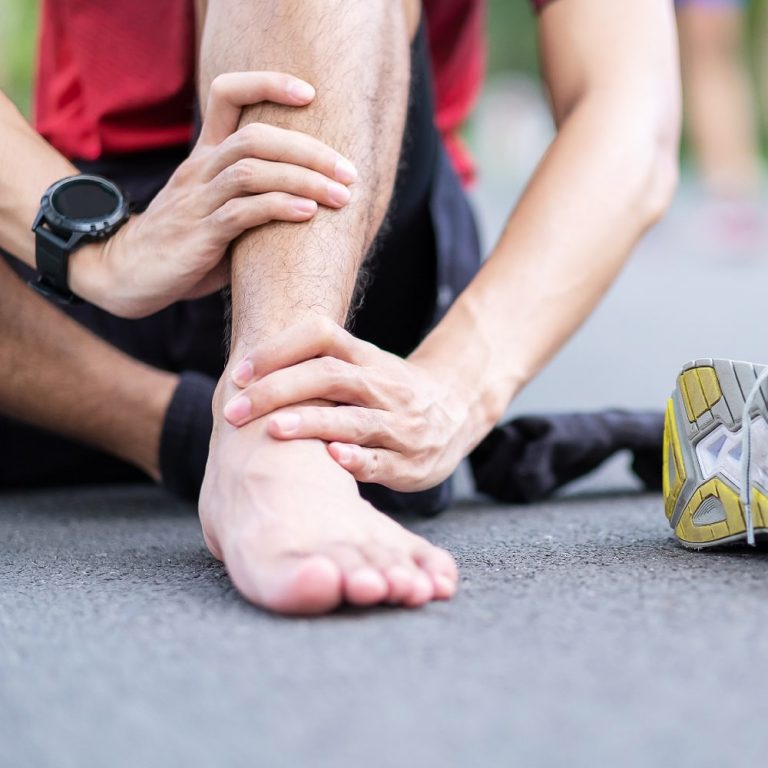Achilles Tendonitis: Symptoms & Effective Treatment

What is Achilles Tendonitis?
The Achilles tendon is a strong, thick fibrous band that connects your calf muscles to your heel bone. It acts like a spring at the back of your ankle which creates a fast and powerful response when force is applied to it. Achilles tendon pain often includes inflammation, swelling and pain.
Do you need treatment?
Book now
What Causes Achilles Tendonitis?
As with most other tendon injuries, your Achilles tendon can become overloaded from excessive loading such as running or jumping, sudden increase in training intensity and leads to inflammation, swelling and pain. Common causes of this type of pain include tendinopathy (mid-portion and insertional) and partial thickness tear.

Common Symptoms of Achilles Tendonitis
Common symptoms of Achilles Tendonitis include:
- Localised pain or stiffness in part of the tendon, usually behind your ankle or heel.
- Tenderness with palpation and possibly a small swelling or ‘lumpy’ on the Achilles tendon.
- Increasing pain with activities such as prolonged running and jumping, even walking when the pain is severe.
- Morning stiffness or pain that improves with mild activities.

Achilles Tendonitis Treatment
First and foremost, the correct diagnosis of your Achilles pain is important to its management. There are many things that can cause pain in the Achilles region, whether it’s the tendon itself, the calf complex or even the lumbar spine, hence if you have any pain in your Achilles, come down to see one of us so we can provide you with an accurate diagnosis and management plan.
While management of different types of Achilles tendon injuries varies at different stages, load management makes up the first part of the recovery. In an acutely sore tendon, our physiotherapists often recommend cutting back on load such as reducing training intensity and changing sports for a few weeks. In particular, it’s important to avoid excessive running or jumping during your recovery. This allows time for the pain to settle and tendon to heal.
Our physiotherapists strongly recommend avoiding poking your tendon or stretching your calf if you have Achilles tendon pain. Research has shown that compression plays a huge role in the development of Achilles tendinopathy as well as the progression of the pathology. If tight calf is contributing to the problem, we recommend using your foam roller and roll it so it stopped tugging on the tendon.
Current research also shows that isometric exercises such as sustained heel raise act as the ‘Panadol’ for tendinopathic pain while maintaining some baseline strength of the tendon. However, there is no ‘one size fits all’. It is very important that you see a trained professional to have an assessment for diagnosis before starting any exercise program. Our experienced physiotherapists can provide you with this, as well as a targeted rehabilitation program suited to your injury.
Get in touch to book an appointment now.
Book now